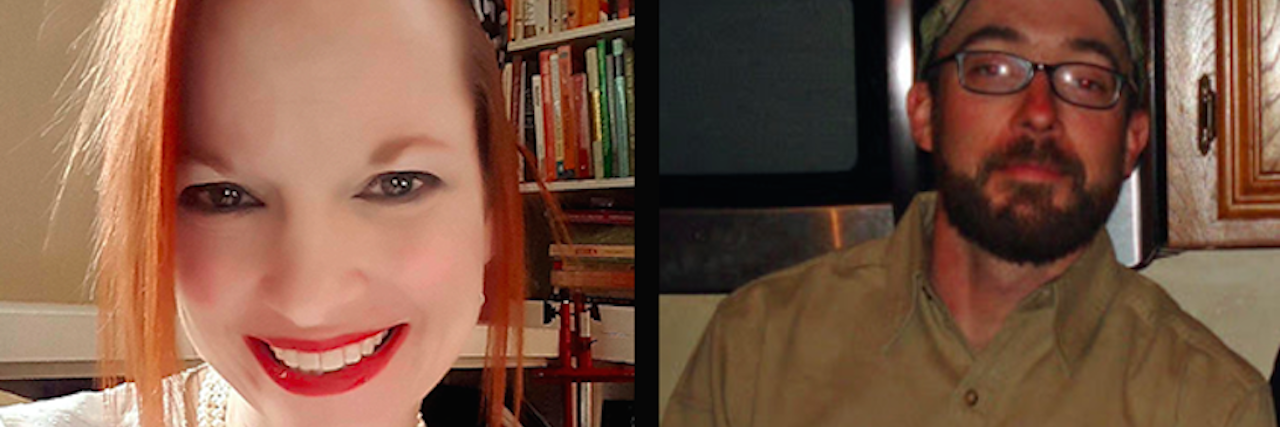I imagine depression, anxiety and other mental health disorders as a dark shadow looming over you, whispering your biggest insecurities, worst fears and deepest scars in a continuous loop. Sometimes the voice mimics people from your past, even loved ones. The worst and most frequent is your own voice. How do you ignore your voice? You isolate yourself because you feel inadequate, but the more you isolate yourself the louder it becomes. You want help and often know you need it. Someone who is depressed isn’t always capable of opening up. Asking for help means burdening someone with your problems. It’s also risking they wouldn’t understand and might treat your issues as insignificant. It will pass… until it doesn’t.
Brian Heng was my brother-in-law for many years, and he called me his sister even after my divorce. I watched him graduate from high school, and we had our noses pierced together. A wonderful uncle, Brian loved each of his nieces and nephew dearly. He loved writing poetry, drawing and painting. On October 23, 2014, at the age of 35, after a life-long battle with depression, Brian took his own life. He left behind his mom, his dad, his stepmom, two brothers, three nieces, one nephew, three sister-in-laws, a ton of devastated friends and other extended family members. There is not an easy way to sit down with your children and explain their uncle took his own life.

I found one of my old journals while searching for something else in a closet. I thumbed through my words, written around age 18. “I enjoy imagining my suicide. The shot, footsteps running, finding my body. Calling everyone and telling them. The funeral. Mom and Dad would be devastated.”
I read my words, remembering how it felt to hear the dark shadow whispering to me. I had never told Brian about any of it. If he had known my story, would he have talked to me? I will never know the answer to that question, but I know Brian would never want anyone else to follow his path.
The journal entry I read wasn’t uncommon. I skimmed some of my older books, finding similar entries at low points in my life, as early as age 14. I wrote poetry about death, day-dreams about razor blades, pills and guns. At one point I had even cut. These things were all symptoms of something bigger, which I was unable to see at the time. Around the time of the journal entry mentioned above, I was 18, and living in my first apartment all by myself in another state. My dad and stepmom lived in one state and my mom lived in another. I was completely on my own, but I was independent and stubborn. After a series of poor decisions, the results of self-destructive behavior that pushed away most of my friends, I lost my job and feared I would lose my apartment. Feeling like a complete failure, I attempted suicide.
Sitting in my dark apartment, I thought about my parents, my friends and everything I would be leaving behind. I picked up the phone in my haze and called my best friend. I don’t remember what I said to her, but she was at my door within the hour with her mother.
A rescue squad took me to the hospital. “You’ll remember this for the rest of your life,” one of the nurses said. I’ll never forget that line. I realize now they were trying to scare me so I would never try to harm myself again. While my life has been far from perfect, it has been filled with perfect moments; amazing people, laughter, creativity and love. I am thankful every day to be here. If I would have succeeded, my daughters never would have been born. Raising them has been the most wonderful and challenging thing I have ever done. I tried not to discuss what happened. I worried people’s opinions of me would change if they knew about what I had done.
I think one of the best things you can do for someone with any sort of mental illness is stop trying to fix them, and let them know you will be there no matter what happens — no judgments. All of us were so determined to get help for Brian that we lost sight of what he really needed — our love and support. There was so much more to him than his depression.
I feel those of us who have struggled with any kind of mental health issue have to be brave, uncomfortable, and therefore we must be vocal. Silence only serves the illness, feeding the isolation and self-destruction. After his death, I realized it was time to share my story in order to help others. I realize now I am proud of all aspects of myself, the dark and the light — even the shadows.

For those who have never suffered from depression, anxiety or other mental health disorders, here is a link with more information about mental health disorders: Suicide Prevention Toolkit.
A version of this piece originally appeared on Family Fusion Community.
If you or someone you know needs help, see our suicide prevention resources.
If you need support right now, call the Suicide Prevention Lifeline at 1-800-273-8255.

